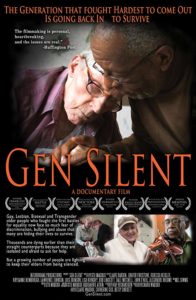Last Thursday I had the honor of participating in the program organized by Toby Weiss, Director of Cultural Sensitivity and Jewish Programming MJHS Hospice and Palliative Care, to educate and sensitize healthcare providers about the special needs of the aging LGBTQ population. This program came one week after my own presentation about the special needs of aging trauma survivors, with a focus on Holocaust survivors and what we learned from them about the needs of others who survived human-perpetrated, intentional persecution and brutality. The LGBTQ program was very timely, given that New York has been hosting WorldPride this past month, including a march which coincided with the 50th anniversary of the Stonewall riots, considered the catalyst for the modern gay rights movement.
I must admit that the program, which included the documentary “Gen Silent”, shook me to my core. I had not fully realized before what degree of fear and insecurity must still pervade the experience of aging and ailing LGBTQ individuals as they enter the phase in which they inevitably need the help of home health-aid providers, healthcare providers and long-term care facilities.
I strongly recommend viewing this eye-opening window to the distress of aging LGBT, individuals who have fought valiantly for their rights and changed American society and yet, as they become frail and ill, are afraid of becoming abused or ostracized by healthcare providers.
I believe that the way we treat our elders is a profound measure of our humanity. All elderly. The beginning of dehumanization is the view of the other as ‘less human than I’. The “Other” is sometimes more easily cordoned-off as different from us, because of a different skin color or looks. However, that ‘other’ can often be living among us, more openly or less openly. They can be a family member, a neighbor. Someone we love. Someone who needs to know we love them no matter what.
The documentary “Gen Silent” brings fore a critical examination of the profound ideas and values of each of us as individuals and of our society regarding our stance about the suffering of others, about individuals and groups who live among us and feel “othered”, and about the imperative to provide respectful, safe, well-informed care for elderly LGBT patients and clients.
Irit Felsen


Leave a Reply